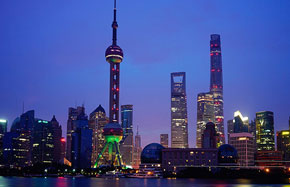China in transformation - taking the pain, seeing the gain
BEIJING - Back in the 1990s, Long Youfu had a pretty horrible job, creeping into scorching kilns and polishing ceramic tiles.
Today, he merely monitors an automatic loading and unloading system and presses some buttons on a polishing machine.
Long works in Guangdong Wonderful Ceramics Group in South China's Dongguan, the city which supplies one-fifth of the world's smartphones and one-tenth of the world's shoes. It's often called "the factory of the world."
Average annual wage in Dongguan had nearly doubled in five years to 46,000 yuan ($7,100) in 2016.
As growth slowed, demand dwindled and the days of cheap labor ended, the city's businesses had to evolve or perish. Some traditional industries still rely on intensive labor and if they do not change the way they operate, they might not survive.
In the worst year, Guangdong Wonderful Ceramics Group posed a loss of 13.3 million yuan, but it strove to develop overseas markets and used technology to cut costs and raise productivity.
"We invested nearly 400 million yuan on technology and cut the number of workers on each production line from 100 to 40," said He Jiye, the company's deputy Party secretary.
"Our daily per-capita output has increased more than 20 fold," he added.
In 2016, the company made 240 million yuan profit, up 27.8 percent, with clients in more than 60 countries and regions. The group invested $172 million in a factory in Tennessee last year, where further automation has reduced the number of workers on production lines to 20.
Dongguan has supported the manufacturing industry to the tune of at least 200 million yuan each year for the past three years to encourage technological upgrades. There are still a few factories where thousands of workers in long lines hunch over sewing machines or slot components into printed circuit boards, but that mode is being replaced by partially automated production lines, with human workers only at key points in the process.
More than 1,500 km away from Dongguan, in Yancheng, Jiangsu province, a similar transformation is underway.
At the workshop of Jiangsu Sunway Precision Forging Co, robots forge high-temperature alloy pieces while humans operate computers and monitor the robots.
The company, which used to produce bicycle parts for major domestic manufacturers, now supplies precision car parts.
"We decided to transform the company in 2000 and increased spending on research and development," general manager Dai Jingmin said.
Since 2015, the company has spent more than 200 million yuan, one third of its output, on technological upgrades, the precision of its products and work safety.
Nationwide, the old growth engines are unable to carry the economy forward. The country is trying to transform the economy towards a model that draws strength from consumption, innovation and service.
The gains from the transformation are beginning to soothe the pains. Although growth rate fell to a 26-year low in 2016, it is steadier and perhaps more sustainable.
From 3D printing to genetic engineering, from drones to artificial intelligence, Chinese companies are leading the world in reshaping the technological and business landscape.
The economy is on the right development track, despite the downward pressure, said Zhang Junwei, an economist at the State Council Development Research Center.

























